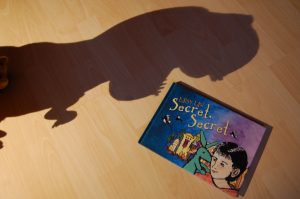 Daisy Law has over 17 years’ experience as a teacher of English and literacy. As a teacher, she has been trained in safeguarding and understands the importance of children being able to disclose secrets about abuse, neglect and other such topics.
Daisy Law has over 17 years’ experience as a teacher of English and literacy. As a teacher, she has been trained in safeguarding and understands the importance of children being able to disclose secrets about abuse, neglect and other such topics.
Not all conversations are easy, even when you’re an adult. Whether as a parent, a teacher or a health and social work professional, there are some discussions which can feel too emotionally charged for us to confront. The reasons some conversations are trickier can be many and varied, but when that difficult talk is with a child sufferer of abuse, it’s important to see things from their point of view. In the trickiest conversations with children, support for them is more important than our own discomfort.
Any form of child abuse can be so entrenched in societal taboos that the shadow of those structures affects the way we approach speaking about it with kids. We may not mean to. We may not even know we’re doing it. But nonetheless, our choice of words, tone or body language can reinforce issues of blame and shame which children who have been abused often carry within.
Let’s take modal verbs, for example. Right from when they’re too young to talk, children experience the framework of modal verbs in the choices they make and the activities which are imposed upon them. Modal verbs such as ‘should’ teach a child that they are duty bound to perform tasks or obey members of their family: “You should do as you’re told,” we say. Children hear ‘should’ alongside endless behavioural expectations such as sitting still, keeping quiet and the nebulous ‘being good’ as well as alongside practical expectations such as brushing their teeth or putting their things away tidily.
The word ‘should’ can be attached to associations of guilt and inadequacy or a sense of moral pressure. How many adults – regardless of intellectual understanding to sway them otherwise – have felt themselves to be a failure or a disappointment when “Oh you should have done it like this,” or “You shouldn’t have done that,” is levelled at them? How much greater are such emotional responses to the word ‘should’ for a child – any child – or more specifically for a child who has been bullied, mistreated, abused and coerced?
So one way that we can make tricky safeguarding conversations easier is to carefully choose our words. It can be all too easy to say something like “You should have told me!” and add a sense of culpability to the weights a child is already carrying psychologically and emotionally.
This is why, when I wrote Secret, Secret, the only modal verb in the pared-down text is one of possibility and child-led openness. The text ends with the “What would you do?” hypothetical question, rather than a phrase about what someone ought to do. The word ‘would’ is one of options and choice like ‘could’ but with the added sense of autonomy through which children can feel empowered. It’s a subtle business, but it is details such as this which inform best practice across social work and legal protection fields.
The best of practitioners within the Police’s specialist Child Protection teams advocate child-led discussion. This applies equally to preventative work as well as the sensitive business of listening to the disclosure of traumatic events. “We take things at the victim’s speed,” a senior officer advised me recently. This means avoiding words which sound or feel judgmental to the child. It also means praising and thanking them for their honesty and bravery. It means listening more than speaking, and believing what the child says and – crucially – communicating that belief back to them.
However compassionate we are as adults, we need to constantly remind ourselves of these basics of communication. Every individual child may have grown up with a different set of experiences, but each child relies on the verbal and non-verbal cues they’re given to know what they’re allowed to talk about and express. As adults we spend so much time telling children what they’re not allowed to do or say or express, that it can be difficult for them to communicate even simple issues and ideas freely. So the sensitive topics of abuse, bullying, mental health problems, addiction, violence and crime can seem almost impossible to broach.
Being pro-active about how a child could interpret our stance, our hand gestures, the speed at which we speak, how much eye contact we maintain with them – all of these aspects can help make tricky conversations easier for everyone concerned. Preparation is part of the process, of course, too. Planning talk time within a supportive physical environment, for example, somewhere the child feels safe and comfortable and has the freedom to move around or leave if they wish to, rather than a restrictive place such as inside a moving car where all sense of autonomy is removed.
But an aspect of effective communication which is often forgotten is that of time. Or the word count, if you like. Little and often – rather like a blog post – can be the best approach. Offer someone the opportunity of discussion if they want to engage with it, and know when to shut up and stop.
For more information on Secret, Secret, visit our website.